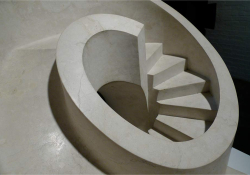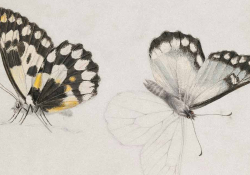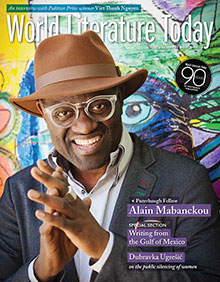Three Poems
The instrument did not choose this ceremony.
My mother offered me five strings, nouns
without a grammar.
I left my mother’s emptiness, to embrace my own.
Whose darkness sits in the north,
if no one can sing my sorrow?
_______
_______
_______
It arrives again, a tapatío Sunday.
Sitting in sombras, the Village piper contemplates
an honest death, full, a music that penetrates
a soul once given to fears it now tolerates.
The piper must see the benevolence the day
allows, how it turns upon a debt he must pay.
Plaza sand becomes a vibrating string, sign
that fashions a first harmonic of secret rain—
nothing as simple as the flourishing and grain
and temper of voice that tends a sovereign domain,
nothing as rigorous as a once broken line,
nothing as fertile as the piper’s own design.
The twilight belongs to this hymnal presence,
to the frequency of a rhythm given by chance.
The piper would close the book on such dissonance;
he knows nostalgia measures an extravagance
his spirit cannot afford; he left that evidence
beyond the plaza where death sustains an absence.
_______
_______
_______
In Michoacán,
a warrior sheds his wings;
he will not fall in love,
in Michoacán.
In Michoacán,
the light wears wedding rings;
nothing else is as brave,
in Michoacán.
Editorial note: From Postage Stamps, © 2016 by Jay Wright. Published with permission of the author. All rights reserved.











